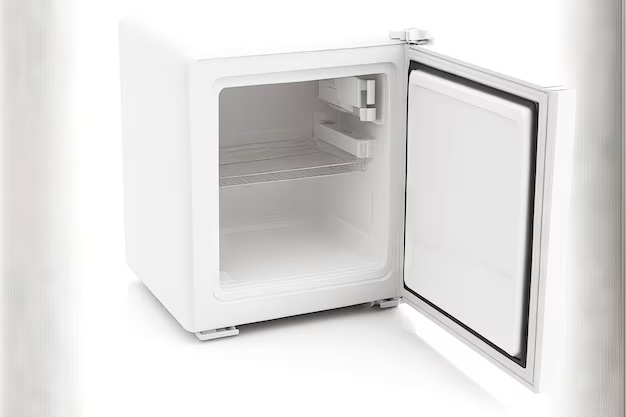How Long Does a Refrigerator Stay Cold Without Power? Discover Insights and Strategies
Have you ever wondered what happens to your refrigerator's coldness when the power goes out? It's a situation many of us face, with food preservation and safety instantly becoming a top concern. Understanding how long a refrigerator can maintain its cold temperature without electricity is vital to ensuring your food items remain safe and fresh. In this article, we'll explore essential insights on your refrigerator's resilience during an outage, practical tips for maintaining its internal temperature, and related subtopics to enrich your knowledge.
Factors Affecting Refrigerator Temperature Retention
The Science Behind Cold Retention
Refrigerators operate using a simple principle: they maintain a cool environment that slows bacterial growth, preserving perishable food items. During a power outage, however, your fridge becomes a heat exchange system, gradually warming as it loses its cooling ability.
Key influencers of cold retention include:
- Ambient Temperature: Warm external temperatures can hasten internal warming.
- Duration of Outage: The length of time without power directly impacts cold retention.
- Initial Temperature: A well-cooled refrigerator before the outage will keep food cold longer.
- Frequency of Door Openings: Every door opening lets warm air in and cold air out, accelerating temperature rise.
- Refrigerator Model: Modern fridges with better insulation and technology may retain cold longer.
Average Cold Retention Duration
Most refrigerators, under optimal conditions—when left unopened—can retain a relatively safe internal temperature for about 4 to 6 hours. Freezers, in comparison, last longer, typically staying cold for up to 48 hours if full and 24 hours if half-full. These durations are general benchmarks and can vary based on the factors mentioned above.
Proactive Measures to Extend Coldness
Ensuring your perishable items remain safe during prolonged power outages requires preparation and strategic measures. Here's how you can maximize your refrigerator's cold retention.
Smart Organization Tips
- Group Similar Items: Clustering items can help maintain a localized cold environment within the fridge, slowing down overall temperature rise.
- Use Ice Packs: Stock up on ice packs or frozen water bottles around perishable items. They act as a buffer, absorbing heat and slowing warming.
- Insulate With Blankets: If a prolonged outage is anticipated, covering the fridge or freezer with blankets can reduce heat infiltration without obstructing ventilation.
Behavioral Strategies
- Limit Door Openings: Keeping the door closed preserves cold air.
- Prioritize Use of Perishables: Consume items that spoil quickly first, ensuring most would be safe by the time the fridge warms.
🛠️ Quick Tips for Power Outages:
- 🧊 Fill Empty Space in Freezer: Maximizes efficiency and helps maintain a lower temperature longer.
- 🐳 Create Ice Blocks in Freezer: These blocks will keep areas cooler and absorb heat.
- 🚪 Plan Door Openings: Open strategically and quickly.
- 📦 Have a Cooler Ready: Use for temporary storage of essential items requiring immediate refrigeration.
Related Considerations for Refrigerator Efficiency
Understanding how long a refrigerator stays cold is just the beginning. There are other important aspects to consider for optimal food storage and appliance longevity.
Temperature Settings and Maintenance
- Ideal Temperature Settings: Ensure your refrigerator is at or below 40°F (4°C) and your freezer is 0°F (-18°C).
- Regular Maintenance Checks: Clean coils, check seals regularly, and ensure there's enough space behind the refrigerator to allow heat dissipation, maintaining efficiency.
Power Outage Readiness
- Invest in a Power Backup: Portable generators or battery backups can keep essential appliances running during outages.
- Surge Protectors: Protect your appliance from power surges that can occur when electricity is restored.
Sustainable Practices
- Energy-Efficient Models: Consider models with energy certifications and advanced insulation to enhance natural cold retention.
- Solar Power Options: In some cases, powering your device through a solar setup can provide a self-sustained alternative.
Closing Insights
Navigating a power outage and the subsequent risks to refrigerated foods becomes much easier when armed with knowledge. Preparing your refrigerator and adopting smart strategies can save you stress and ensure food safety. While a typical refrigerator can retain cold for 4 to 6 hours, employing both immediate and proactive measures extends this duration, safeguarding your food investments.
For ongoing resilience, consider upgrading to energy-efficient models, performing regular maintenance, and developing a reliable power outage plan. These practical steps empower you to face outages with confidence, knowing you have minimized risk and maximized appliance efficiency.

